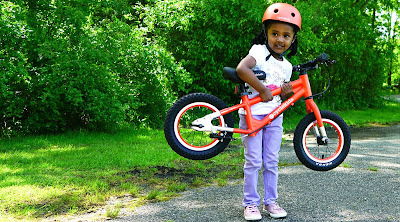Things to keep in mind when selecting books for your children
There will always be books that can take you past your most erratic creative mind. You remember some books more than others. Books that have an impact on you in ways that no other book has. I've had the good fortune to read through a large number of them.
Have you ever wondered why some books you can't put down but others you just can't get the essence of? This is due to the fact that not all books are created equal.
There are three types of books: acceptable, awful, and appalling. Furthermore, when you read a good book, you recognise it because great books change you. They transport you to places you never imagined existed. They allow you to see your reality in a new light. They demonstrate things to you.
The same is true for children's books. When it comes to selecting the best books for children, not all books are created equal. So, what should you consider when selecting children's books?
Choose a good match.
The best book for your child is determined by their age and level of development. Great children's books use bright colours and simple rhymes and messages to make the storey more interesting.
Scientists believe that children who learned through rhymes excelled in later comprehension. A good little child book makes use of repetition and introduces fundamental concepts such as colours, letters, and numbers. At this age, picture storybooks with a simple plot are appropriate.
Lift-the-fold books are especially beneficial for young children because they encourage them to control and investigate the books. Support books are also excellent for babies because they promote active learning by allowing children to invest: applaud, spread your eyes, and so on. There is evidence to support the idea that children who engage in effective reading benefit the most from this movement.
As children grow older, simple books with exercises can be appealing to them and should demonstrate a basic exercise. Beautiful Oops!, for example, is a great intuitive book that can show your children that mistakes are an opportunity to be creative.
Between the ages of three and six, children have a lot of questions about the world. Great books for this age group have simple stories with a plot and excellent realistic outlines that answer these questions. Basic educational books (true to life) about topics that interest children are also beneficial at this age. Great educational books, such as Dinosaur Bones, are simple and cover topics that children are interested in or are familiar with.
Children who are just beginning to read require books with intriguing and unusual plots. They can investigate different skylines with the help of shifted books. As children grow older, the books should logically become more mind-boggling, with more expressions and increasingly complex storylines necessitating more reflection. Great books for this age group feature characters that children can relate to. Enlightening books with captivating facts presented as a storey are also enjoyable to read.
Every page has about five difficult words.
Books that are beyond your children's reading level will undoubtedly disappoint them. Consider what they know when selecting a book. They should be able to read it quickly and understand the plot without having to look at each word. Examine a few pages for yourself and note any words that you believe they may have difficulty with. They will most likely dislike the book if there are an excessive number of difficult words (more than five) on each page. As they gain more experience, they should be able to read more difficult books.
You can buy your favourite children's books online from major brands from the comfort of your own home; the main advantage of purchasing books online is cost savings. Many deal provider sites have offers from many merchants on their portal on kids books and stationary items; you must search for the best deals to save the most money.
Choose a book that they will not want to put down.
Allow yourself to be guided by the benefits of your children. If the book they're reading is related to something that interests them, they'll most likely enjoy reading it more. If you're still unsure about which books to get for your children, read a few pages to see if you enjoy the book yourself. However, keep in mind that you are purchasing the book for them; otherwise, they may dislike it.
Inquire about it and read the reviews.
Depending on your children's ages, bookkeepers and book retailers frequently have a lot of solid advice to offer. Speak with the local curator and request that the person in question recommend a couple of books based on their ages and interests. You can also look at what people are saying on websites.
Decide on wise choices.
Books are an excellent resource for teaching children about life. The books your children read can teach them important life lessons. Consider the qualities you want your children to develop, and then make the appropriate book choices.




Comments
Post a Comment